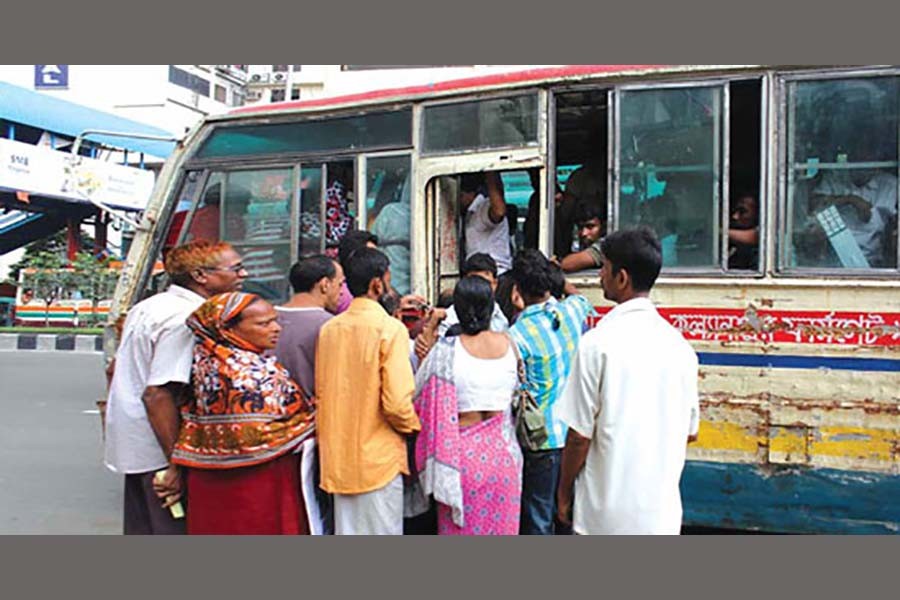That execution of many important decisions is individual-centric in this country has again come to the fore. The move to introduce new buses under 'company system' in Dhaka city has thus remained stalled because of the absence of Dhaka North City Corporation (DNCC) mayor. The mayor has been undergoing treatment in a London hospital for quite some time. A report published in this paper Tuesday last said the process of introducing new buses under a restructured route-chart has been kept in abeyance, because of absence of follow-up moves by the relevant parties. The new transport business model involving the bus operators in the private sector is aimed at easing the clumsy and chaotic movement of buses in Dhaka city. The incumbent DNCC mayor took the initiative in 2016 at the directive of the Prime Minister.
The Dhaka Transport Coordination Authority (DTCA), the agency responsible for carrying out negotiations with bus operators and transport workers, has reportedly withdrawn itself from the planned negotiations, fearing 'political interference'. The absence of the mayor is said to be the main reason behind such a retreat. This might then lead to 'abortion' of the pious initiative to streamline the city's messy public bus transportation system. The commuters have to bear with lots of sufferings due to an almost unregulated public bus service. The initial meetings held between a number of stakeholders, including bus owners, and the DNCC mayor raised the hope of a positive outcome. This was because the bus owners did reportedly endorse at that time the proposal to form six separate bus companies to operate buses in Dhaka city to be divided into six business divisions.
The initial positive response to the initiative, that too from bus owners and also workers whose 'unions' are otherwise considered to be beyond any control, was a major achievement on the part of the DNCC mayor. But further progress in relation to the proposed city bus transportation business model has remained suspended. The DTCA, as the latest developments indicate, is not enough confident now about pursuing the negations in any effective manner in the absence of the mayor. Moreover, the agency reportedly does not have funds to carry out its bus route rationalisation works. It used to source funds earlier from the Bus Rapid Transit (BRT) Project, funded by the World Bank. The project is now closed.
The initiative for rationalising the routes under the proposed operation of a business model for bus service, if executed properly, would help streamline the city's transport system and thus reduce sufferings of the commuters to a great extent. But the fate of the move remains now largely uncertain. The DNCC mayor, backed by strong support from the highest authority of the government, demonstrated his strong personal commitment to the initiative. That is obviously not favoured by the vested interests in the transport sector. The government should not allow the initiative to meet such a premature death. In the absence of the mayor, it should give someone else the authority to hold negotiations with all the stakeholders and try to make the move successful. The DTCA should also get necessary funds for doing its part of the job.


